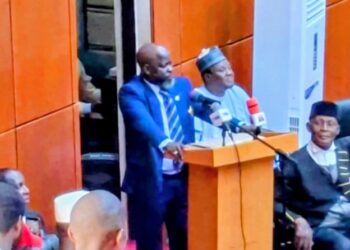F G Imposes Seven-Year Moratorium on New Tertiary Institutions to Address Overcapacity Issues.
From Our Correspondent.
The Federal Government of Nigeria has announced a seven-year moratorium on establishing new federal universities, polytechnics, and colleges of education.
This move aims to curb the proliferation of underutilized institutions and address concerns regarding resource strain and declining academic standards. The decision was ratified during a meeting of the Federal Executive Council (FEC), chaired by President Bola Tinubu.
Dr. Tunji Alausa, the Minister of Education, highlighted the pressing challenges facing Nigeria’s tertiary education system. He emphasized that the issue is no longer solely about access to education but rather concerns the inefficient duplication of institutions, inadequate infrastructure, insufficient staffing, and decreasing enrollment rates across many existing facilities.
During the briefing, Alausa pointed out that several federal universities are operating significantly below their capacity. For instance, one northern university has 1,200 staff members catering to an enrollment of fewer than 800 students, which he described as a misallocation of government resources.
He further revealed alarming statistics showing that out of 199 federal universities, many received fewer than 100 applications last year, with 34 institutions receiving no applications at all.
Additionally, Alausa mentioned that among Nigeria’s 295 polytechnics, a substantial number had fewer than 99 applicants, while 219 colleges of education faced low enrollment numbers, including 64 that had received no applications.
He warned that the unchecked establishment of poorly subscribed institutions threatens to produce ill-prepared graduates, potentially diminishing the international standing of Nigerian degrees and exacerbating unemployment issues.
To remedy this situation, the moratorium is intended to allow the government to redirect resources toward improving existing facilities, enhancing staffing quality, and increasing the capacity of current institutions.
Alausa asserted that to improve the quality of education in Nigeria and protect its global reputation, it is crucial to pause the establishment of new institutions.
While the moratorium applies to public educational institutions, Alausa noted that the FEC approved nine new private universities during the meeting.
These institutions had pending applications for up to six years and underwent thorough assessments by the National Universities Commission (NUC). Out of 551 applications for private universities that accumulated, over 350 were deactivated due to inefficiencies at the NUC, leaving just 79 active cases, of which nine were deemed qualified for approval.
Significant investments have already been made in infrastructure for these newly approved institutions.
Moreover, the moratorium will extend to new private polytechnics and colleges of education, aiming to alleviate further enrollment challenges.
Alausa praised President Tinubu for supporting these reforms, describing the initiative as a critical step toward revitalizing Nigeria’s tertiary education landscape.
“Mr. President is deeply committed to education and has tasked us with ensuring that every Nigerian has access to high-quality education that meets global standards,” he concluded.
















